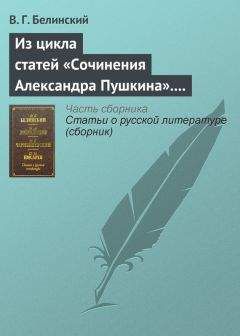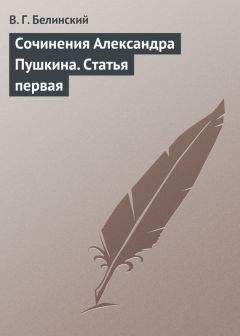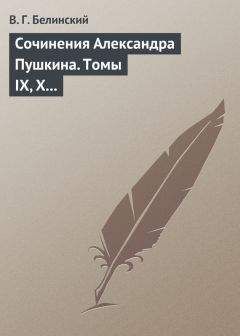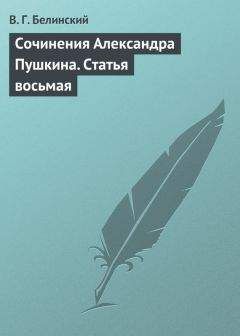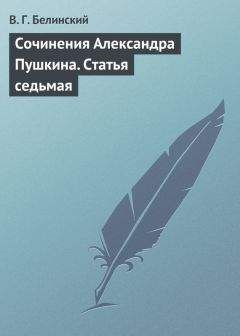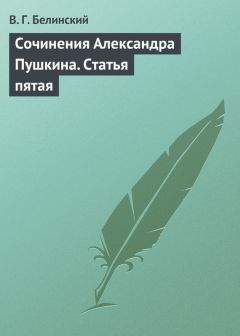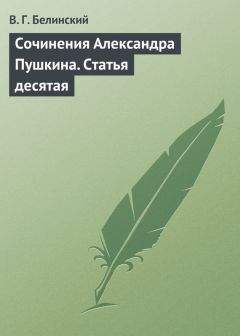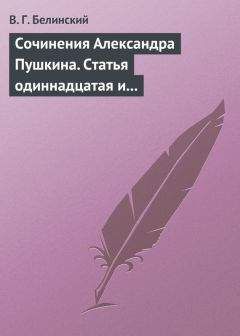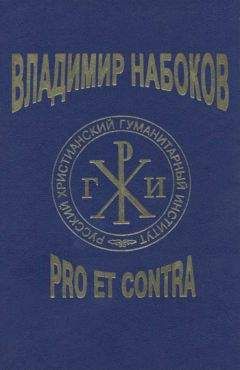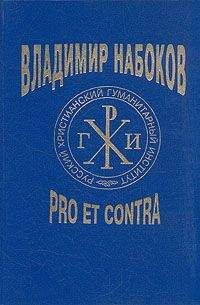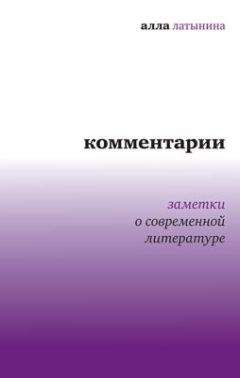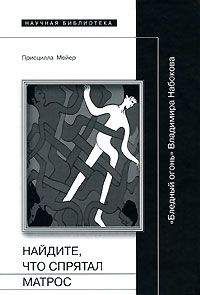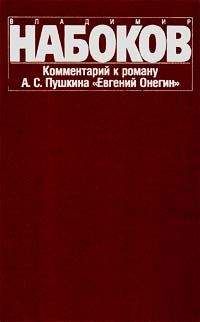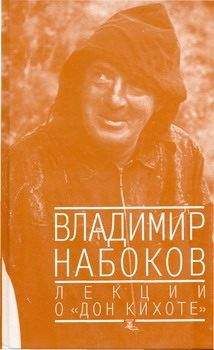Владимир Набоков - Комментарии к «Евгению Онегину» Александра Пушкина
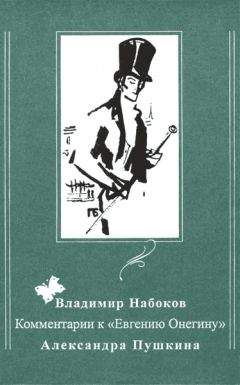
Скачивание начинается... Если скачивание не началось автоматически, пожалуйста нажмите на эту ссылку.
Жалоба
Напишите нам, и мы в срочном порядке примем меры.
Описание книги "Комментарии к «Евгению Онегину» Александра Пушкина"
Описание и краткое содержание "Комментарии к «Евгению Онегину» Александра Пушкина" читать бесплатно онлайн.
Комментарии В. В. Набокова освещают многообразие исторических, литературных и бытовых сторон романа. Книга является оригинальным произведением писателя в жанре научно-исторического комментария. Набоков обращается к «потаенным слоям» романа, прослеживает литературные влияния, связи «Евгения Онегина» с другими произведениями поэта, увлекательно повествует о тайнописи Пушкина.
Предназначена для широкого круга читателей и в первую очередь — для преподавателей и студентов гуманитарных вузов, а также для учителей и учащихся средней школы.
XXXIX
Meanwhile enjoy your fill of it— of this lightsome life, friends!
Its insignificance I realize
4 and little am attached to it;
to phantoms I have closed my eyelids;
but distant hopes
sometimes disturb my heart:
8 without an imperceptible trace, I'd be sorry
to leave the world.
I live, I write not for the sake of praise;
but my sad lot, meseems,
12 I would desire to glorify,
so that a single sound at least
might, like a faithful friend, remind one about me.
XL
the heart of someone; and preserved by fate,
perhaps in Lethe will not drown
4 the strophe made by me;
perhaps — flattering hope! —
a future dunce will point
at my famed portrait
8 and utter: “That now was a poet!”
So do accept my thanks, admirer
of the peaceful Aonian maids,
0 you whose memory will preserve
12 my volatile creations,
you whose benevolent hand will pat
the old man's laurels!
CHAPTER THREE
Elle était fille; elle était amoureuse.
MalfilâtreI
“Good-by, Onegin. Time for me to leave.”
“I do not hold you, but where do
4 you spend your evenings?” “At the Larins'.”
“Now, that's a fine thing. Mercy, man —
and you don't find it difficult
thus every evening to kill time?”
8 “Not in the least.” “I cannot understand.
From here I see what it is like:
first — listen, am I right? —
a simple Russian family,
12 a great solicitude for guests,
jam, never-ending talk
of rain, of flax, of cattle yard.”
II
“Ah, but the boredom — that is bad, my friend.”
“Your fashionable world I hate;
4 dearer to me is the domestic circle
in which I can…” “Again an eclogue!
Ah, that will do, old boy, for goodness' sake.
Well, so you're off; I'm very sorry.
8 Oh, Lenski, listen — is there any way
for me to see this Phyllis,
subject of thoughts, and pen,
and tears, and rhymes, et cetera?
12 Present me.” “You are joking.” “No.”
“I'd gladly.” “When?” “Now, if you like.
They will be eager to receive us.”
III
they have arrived; on them are lavished
the sometimes onerous attentions
4 of hospitable ancientry.
The ritual of the treat is known:
in little dishes jams are brought,
on an oilcloth'd small table there is set
8 a jug of lingonberry water.
. . . . . . . . . . . . . . . . . . . .
. . . . . . . . . . . . . . . . . . . .
. . . . . . . . . . . . . . . . . . . .
12 . . . . . . . . . . . . . . . . . . . .
. . . . . . . . . . . . . . . . . . . .
. . . . . . . . . . . . . . . . . . . .
IV
fly home at full career.17
Now let us eavesdrop furtively
4 upon our heroes' conversation.
“Well now, Onegin, you are yawning.”
“A habit, Lenski.” “But somehow
you are more bored than ever.” “No, the same.
8 I say, it's dark already in the field;
faster! come on, come on, Andryushka!
What silly country!
Ah, apropos: Dame Larin
12 is simple but a very nice old lady;
I fear that lingonberry water
may not unlikely do me harm.
V
“Oh, she's the one who, sad
and silent like Svetlana,
4 came in and sat down by the window.”
“Can it be it's the younger one
that you're in love with?” “Why not?” “I'd have chosen
the other, had I been like you a poet.
8 In Olga's features there's no life,
just as in a Vandyke Madonna:
she's round and fair of face
as is that silly moon
12 up in that silly sky.”
Vladimir answered curtly
and thenceforth the whole way was silent.
VI
at the Larins' produced
on everyone a great impression
4 and regaled all the neighbors.
Conjecture on conjecture followed.
All started furtively to talk,
to joke, to comment not without some malice,
8 a suitor for Tatiana to assign.
Some folks asserted even that
the wedding was quite settled,
but had been stayed because
12 of fashionable rings' not being got.
Concerning Lenski's wedding, long ago
they had it all arranged.
VII
to gossip of that sort; but secretly
she with ineffable elation
4 could not help thinking of it;
and the thought sank into her heart;
the time had come — she fell in love.
Thus, dropped into the earth, a seed
8 is quickened by the fire of spring.
For long had her imagination,
consumed with mollitude and anguish,
craved for the fatal food;
12 for long had the heart's languishment
constrained her youthful bosom;
her soul waited — for somebody.
VIII
she said: “'Tis he!”
Alas! now both the days and nights,
4 and hot, lone sleep,
all's full of him; to the dear girl
unceasingly with magic force
all speaks of him. To her are tedious
8 alike the sounds of friendly speeches
and the gaze of assiduous servants.
Immersed in gloom,
to visitors she does not listen,
12 and imprecates their leisures,
their unexpected
arrival and protracted sitting down.
IX
read some delicious novel,
with what vivid enchantment
4 imbibe the ravishing illusion!
Creations by the happy power
of dreaming animated,
the lover of Julie Wolmar,
8 Malek-Adhel, and de Linar,
and Werther, restless martyr,
and the inimitable Grandison,18
who brings upon us somnolence —
12 all for the tender, dreamy girl
have been invested with a single image,
have in Onegin merged alone.
X
of her beloved authors —
Clarissa, Julia, Delphine —
4 Tatiana in the stillness of the woods
alone roams with a dangerous book;
in it she seeks and finds
her secret ardency, her dreams,
8 the fruits of the heart's fullness;
she sighs, and having made her own
another's ecstasy, another's woe,
she whispers in a trance, by heart,
12 a letter to the amiable hero.
But our hero, whoever he might be,
was certainly no Grandison.
XI
time was, a fervid author
used to present to us
4 his hero as a model of perfection.
He'd furnish the loved object —
always iniquitously persecuted —
with a sensitive soul, intelligence,
8 and an attractive face.
Nursing the ardor of the purest passion,
the always enthusiastic hero
was ready for self-sacrifice,
12 and by the end of the last part, vice always
got punished,
and virtue got a worthy crown.
XII
a moral brings upon us somnolence,
vice is attractive in a novel, too,
4 and there, at least, it triumphs.
The fables of the British Muse
disturb the young girl's sleep,
and now her idol has become
8 either the pensive Vampyre,
or Melmoth, gloomy vagabond,
or the Wandering Jew, or the Corsair,
or the mysterious Sbogar.19
12 Lord Byron, by an opportune caprice,
in woebegone romanticism
draped even hopeless egotism.
XIII
Perhaps, by heaven's will,
I'll cease to be a poet; a new demon
4 will enter into me;
and having scorned the threats of Phoebus,
I shall descend to humble prose:
a novel in the ancient strain
8 will then engage my gay decline.
There, not the secret pangs of crime
shall I grimly depict,
but simply shall detail to you
12 the legends of a Russian family,
love's captivating dreams,
and manners of our ancientry.
XIV
Подписывайтесь на наши страницы в социальных сетях.
Будьте в курсе последних книжных новинок, комментируйте, обсуждайте. Мы ждём Вас!
Похожие книги на "Комментарии к «Евгению Онегину» Александра Пушкина"
Книги похожие на "Комментарии к «Евгению Онегину» Александра Пушкина" читать онлайн или скачать бесплатно полные версии.
Мы рекомендуем Вам зарегистрироваться либо войти на сайт под своим именем.
Отзывы о "Владимир Набоков - Комментарии к «Евгению Онегину» Александра Пушкина"
Отзывы читателей о книге "Комментарии к «Евгению Онегину» Александра Пушкина", комментарии и мнения людей о произведении.







